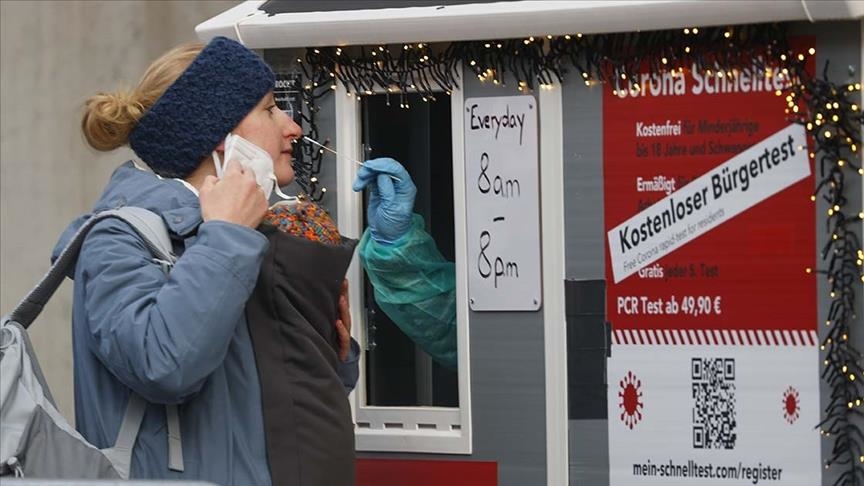Omicron continues to sweep world with 18M virus cases last week: WHO
Tedros Ghebreyesus says omicron peaked in some places, but unvaccinated remain at high risk from severe illness, death

GENEVA
As COVID-19's omicron variant continues sweeping the world with 18 million cases last week, people in countries with low coronavirus vaccination rates are at risk of severe illness and death, the head of the World Health Organization (WHO) said on Tuesday.
"The number of deaths remains stable for the moment, but we are concerned about the impact omicron is having on already exhausted health workers and overburdened health systems," Tedros Ghebreyesus said at a coronavirus webinar. "Make no mistake, omicron is causing hospitalizations and deaths, and even the less severe cases are inundating health facilities."
In countries where cases seem to have peaked, it provides hope that the worst of the latest wave is over, "but no country is out of the woods yet," he said.
"I remain particularly concerned about many countries that have low vaccination rates, as people are many times more at risk of severe illness and death if they're unvaccinated," said Tedros.
He reinforced comments from other WHO officials who spoke at the webinar, reiterating that the vast majority of coronavirus hospitalizations and deaths are from among the unvaccinated.
Not a mild disease
"Omicron may be less severe, on average, of course, but the narrative that it is a mild disease is misleading, hurts the overall response, and costs more lives," said Tedros. "The virus is circulating far too intensely with many still vulnerable."
The WHO chief said the next few weeks remained critical for health workers and health systems in many countries.
He urged everyone to do their best to reduce the risk of infection to help take pressure off the system.
"Now is not the time to give up and wave the white flag," said Tedros.
He said the world can still significantly reduce the effects of the current wave by sharing health tools effectively and implementing tried and true public health and social measures.
He cited COVAX, a facility developed by the WHO to reduce vaccine inequity, and partners such as Gavi, an alliance to help distribute vaccines.
"I am proud COVAX delivered its one-billionth dose over the weekend," said Tedros. "Of course, it's not enough, and we should do more."
He said that it remains more important than ever to get vaccines to the unvaccinated at the time of omicron.
"This pandemic is nowhere near over, and with the incredible growth of omicron globally, new variants are likely to emerge, which is why tracking and assessment remain critical," he said,
"I am concerned that unless that if we change the current model, we'll enter a second and even more destructive phase of vaccine inequity," he added.








